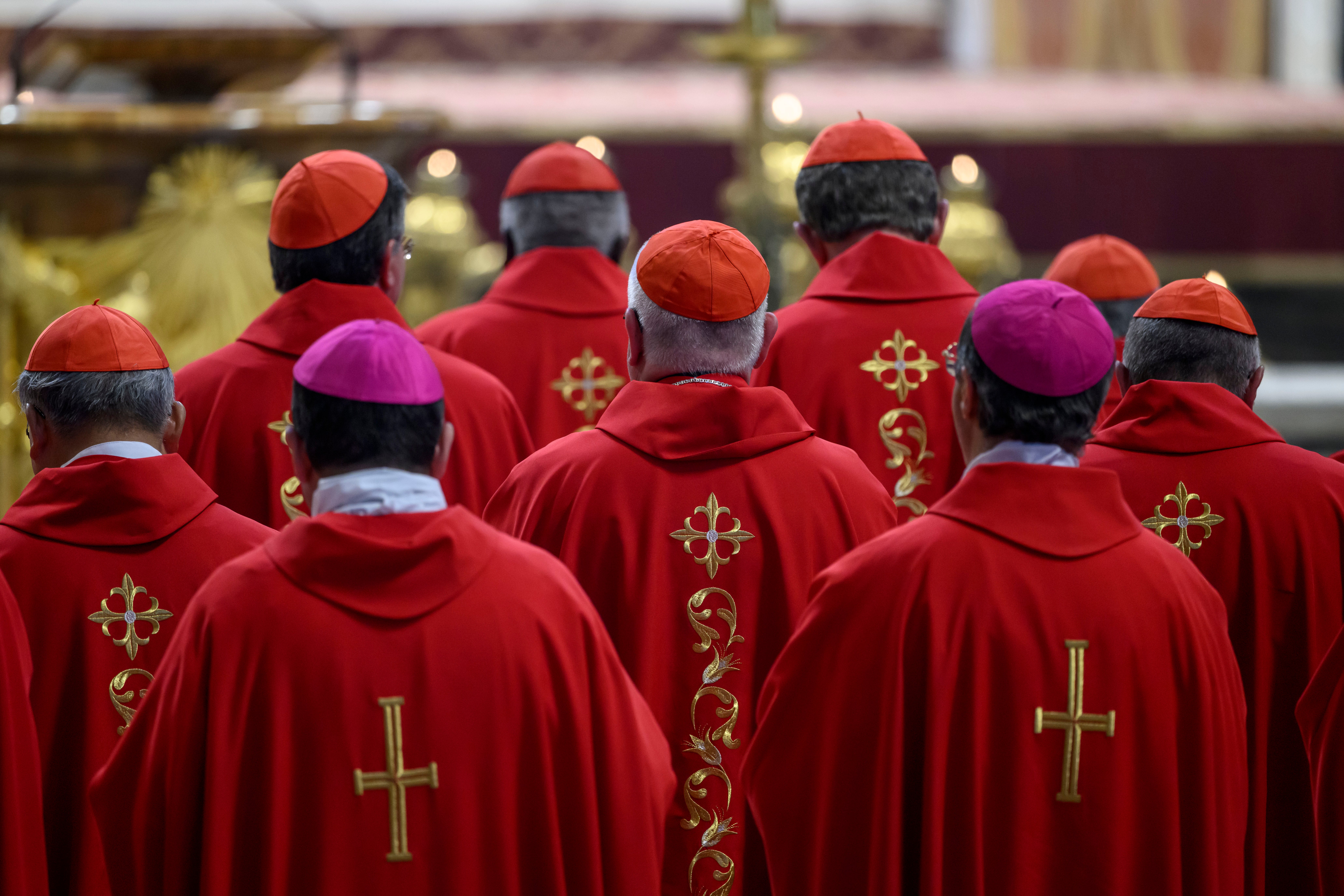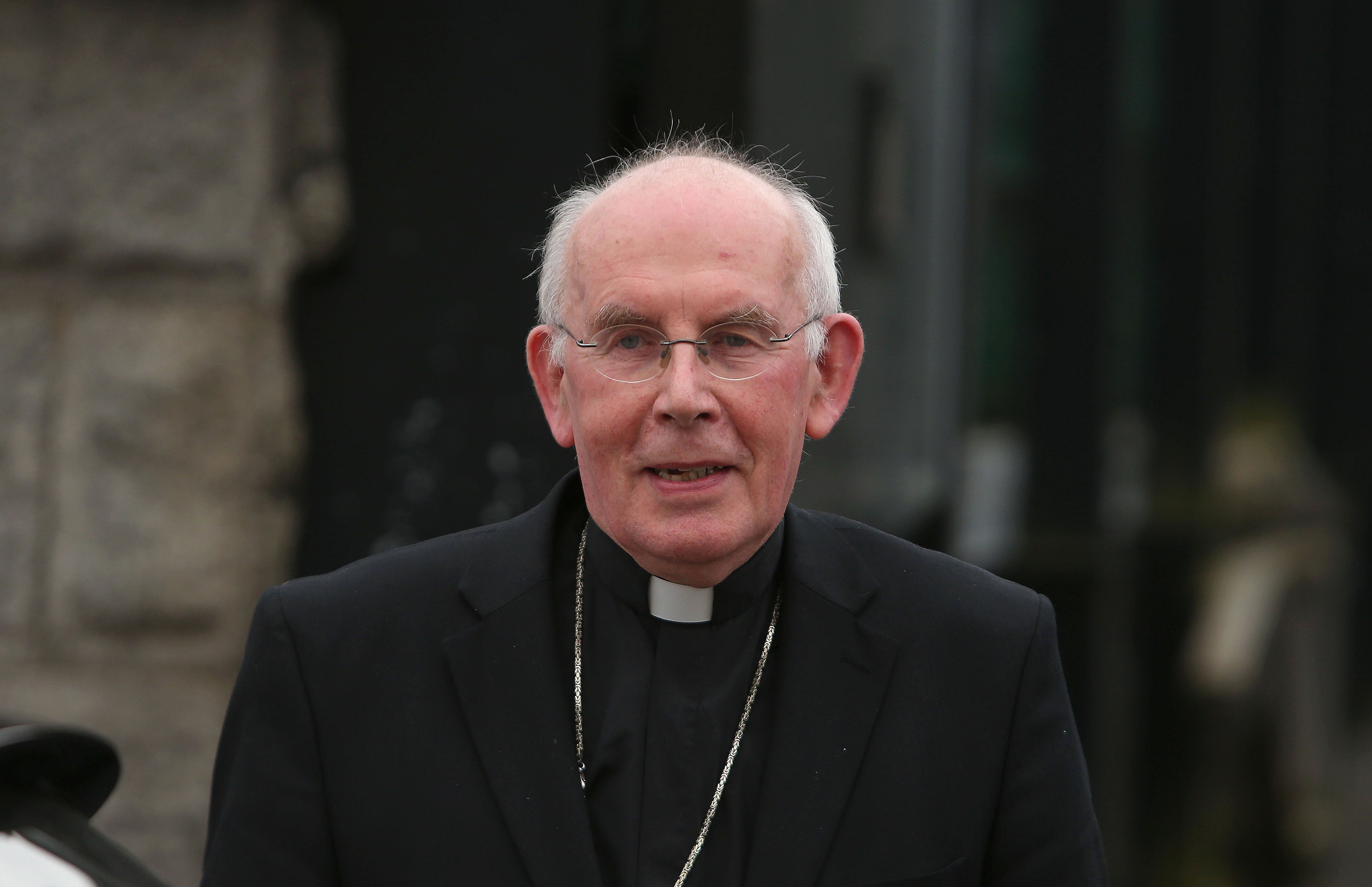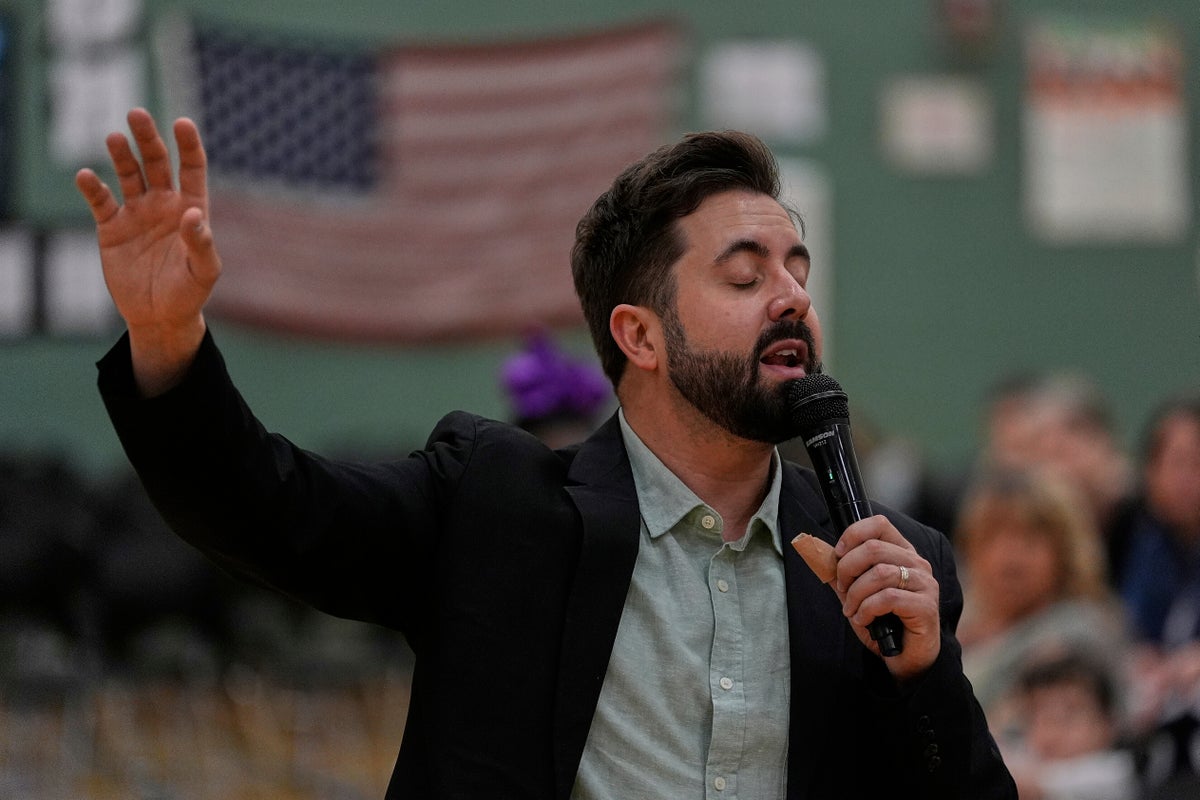ARTICLE AD BOX
One of the UK’s most senior Catholic leaders has appealed for prayers as he and other cardinals prepare for the secret voting process to elect a new pope.
Cardinal Vincent Nichols, who is one of more than 130 cardinal electors entering the conclave on Wednesday, said he feels “quite intimidated” by the global attention focused on the election process.
Following a special mass in St Peter’s Basilica, the group will enter the Sistine Chapel, cutting off all contact with the outside world, until white smoke rises into the air in Vatican City to confirm there is a new pope.
Up to four votes will be held each day, except for the first day, as proceedings will not get underway until the afternoon.
Cardinal Nichols, who is the leader of England and Wales’ Catholics, has been in Rome since shortly after the death of Pope Francis and described getting to know his fellow cardinals during lengthy meetings in the days since.

The cardinal, who is also Archbishop of Westminster, said that before going into the conclave, “we will have met almost 10 times in the formal meetings of the Congregation of Cardinals”.
“These meetings, which have been long and during which we have been very attentive to the contributions from cardinals across the world, now lead us to the conclave at which only those under 80 who will vote for the next pope in the Sistine Chapel attend.
“During these days we have got to know each other and to appreciate the variety of gifts, insights and dedication among us. It is a truly universal church and a reflection of the breadth and diversity of human experience.”
This conclave will have more cardinals from Africa and Asia than previous meetings, mostly chosen by the late Francis.
Cardinal Nichols, who is taking part in his first conclave, has previously spoken of the weight on the shoulders of the electing cardinals, knowing theirs is a choice which will have significant consequences for the Church on the world stage.

On the eve of the meeting, he said: “Going into the conclave, I feel quite intimidated knowing that the outcome of this election is awaited by people all over the world and of many faiths.
“The voice of the pope, especially following Pope Francis, can serve as a call to everyone to fashion a society more fitting to the dignity of every human. That is a big call.”
He said cardinals are entering the meeting “in a profound spirit of prayer and attentive to the promptings of the Holy Spirit who will, I am sure, guide our decisions”.
The cardinal, from Liverpool, added: “I do hope that Catholics and indeed all people will say a prayer asking for God’s blessing at this important moment.”
Asked about his thoughts on the kind of qualities necessary for the top role in the Church, he said: “I hope that the next pope will be, in his own manner of acting and speaking, an attractive expression of the invitation of God in Jesus Christ for all people to know that they are loved by God and destined for glory.”
He has previously effectively ruled himself out of the running to be the next pontiff, describing himself as “too old, not capable”.
The cardinals have a “hugely responsible task” ahead of them and will not want to appear divided in their efforts, according to one UK theologian.
Cardinal Nichols is one of five cardinals across the UK and Ireland, although only three – himself, Cardinal Timothy Radcliffe and Rome-based Cardinal Arthur Roche – are younger than 80 and therefore of voting age.

Professor Anna Rowlands, who spent two years seconded to the Vatican during Francis’s papacy, said the cardinals will want to choose someone who can lead the Church “into a new moment” rather than simply replacing a man whose popularity saw him dubbed “the people’s pope”.
The professor of Catholic social thought and practice at Durham University said: “The cardinals will have had just over a week to meet and discuss openly their priorities and to try to work together to discern who they think God is calling to be the successor to St Peter.
“In their minds, this isn’t so much a replacement for Francis as a moment where they are trying to work out which of them could lead the Church into a new moment.
“Formal and informal meetings have been preparing them for that hugely responsible task of voting in conclave from May 7. And the eyes of the world will be watching.
“No-one can be sure of the length of the conclave itself but one can assume the cardinals would prefer days rather than weeks. They will want to choose very carefully but also appear united rather than divided.”
A two-thirds majority is required for someone to be elected.
The anonymous ballots are burned after voting, with black smoke from the chimney of the Sistine Chapel indicating no one has been elected, but white smoke confirming a new pope has been chosen.
What is a conclave?
A conclave refers to the secret meeting of cardinals who will gather in the Sistine Chapel to vote for the next pope.
According to the Merriam-Webster dictionary, it comes from the Latin meaning a room that can be locked with a key.
Vatican News – the news website connected to the Church in Rome – said 133 cardinals will take part in this conclave, which will begin on May 7.
The day will begin with mass attended by all voting cardinals in St Peter’s Basilica, before they enter the Sistine Chapel – and are cut off from communication with the outside world – to begin voting in the afternoon.
How long might it take?
That is anybody’s guess. Each day, aside from the first, cardinals can vote four times – twice in the morning and twice in the afternoon.
Both of the most recent conclaves, in 2005 to elect Pope Benedict and 2013 to elect Pope Francis, lasted just two days.
This conclave could have begun on May 5, but the delayed starting date of May 7 might allow the cardinals to get to know one another better and find consensus on a candidate or at least the frontrunners.
Who is the next pope likely to be?
Technically, any baptised Catholic man could become the next pontiff, but it is highly unlikely the chosen one would be anyone other than a cardinal.
Only cardinals who were aged under 80 on the day of the pope’s death are eligible to vote, but older cardinals not sitting in conclave could be elected.
While there has been much speculation as to the frontrunners, one expert described this conclave as “totally unpredictable”.

UK theologian Professor Anna Rowlands said this is because the make-up of this College of Cardinals is “very different from anyone that’s been here to elect a pope before”, with higher than usual numbers of electors from Africa and Asia, chosen by Pope Francis.
Catholic commentator Georgia Clarke said there is “a tension between wanting a scholar and wanting a pastor”.
“We saw with Pope Benedict we very much had a scholar, and then in Pope Francis we very much had a pastor. Obviously it would be great if we could have both.”
There must be some favourites, though?
As the meeting is secret, it really is just speculation. But among the names being mentioned as possible successors are Cardinal Luis Tagle, a 67-year-old from the Philippines who was said to be Francis’s pick for the first Asian pope.
Others include Cardinal Peter Erdo, 72, the Archbishop of Budapest; Cardinal Reinhard Marx, 71, the Archbishop of Munich and Freising; and Cardinal Pietro Parolin, 70, an Italian who has served as Pope Francis’s secretary of state since 2014.
What about the UK and Ireland’s cardinals?
It is not thought that any of the UK or Irish cardinals are among the favourites to succeed Pope Francis.
Cardinal Sean Brady, Ireland’s only Catholic cardinal, will turn 86 this summer and so is also unable to vote because of his age, as is Cardinal Michael Fitzgerald, from Birmingham, who will turn 88 in August.
Archbishop of Westminster Cardinal Vincent Nichols, from Liverpool, and the leader of Catholics in England and Wales, is taking part in conclave, as is Cardinal Timothy Radcliffe, who is from London.

Aged 75, Cardinal Arthur Roche, from West Yorkshire and based in Rome, is the youngest of the UK and Ireland’s cardinals.
Both Cardinal Radcliffe and Cardinal Nichols appeared to rule themselves out of the running, soon after Francis’s death was announced.
Cardinal Nichols told reporters he was “too old, not capable”, while Cardinal Radcliffe said he believed the Holy Spirit was “far too wise to even think of me (as pope) for the shortest moment”.
Scotland currently has no Catholic cardinals.
There is also Cardinal Kevin Farrell, who is Irish-born but is seen as an American cardinal, having ministered mainly in the US. He has been based in Rome for some years.
Cardinal Farrell was the one to announce the death of Pope Francis and, as camerlengo, has been the senior official ensuring the smooth running of the church until a new pontiff is chosen, including organising the meetings of cardinals preceding the conclave.
How will we know when a new pope has been elected?
All eyes will be on the colour of the smoke emerging from the chimney of the Sistine Chapel.
The ballots are burned after voting – with black smoke being emitted to indicate no one has been elected, while white smoke confirms a new pontiff.
A two-thirds majority is required for a new pope to be elected.

Catherine Wallis-Hughes, from the Catholic Voices charity mainly involving lay people in the Church, described it as “really beautiful” that everyone will find out at the same time – “the world’s media and someone watching on their mobile phone in Guinea-Bissau, everyone who has access to the internet all together can see that white smoke”.
Once a new pope accepts his election, it is usual that he would appear fairly quickly thereafter on the front balcony of St Peter’s Basilica which overlooks St Peter’s Square.
An announcement in Latin of “Habemus Papam” – meaning “we have a pope” is made alongside the new pontiff’s appearance.









 English (US) ·
English (US) ·